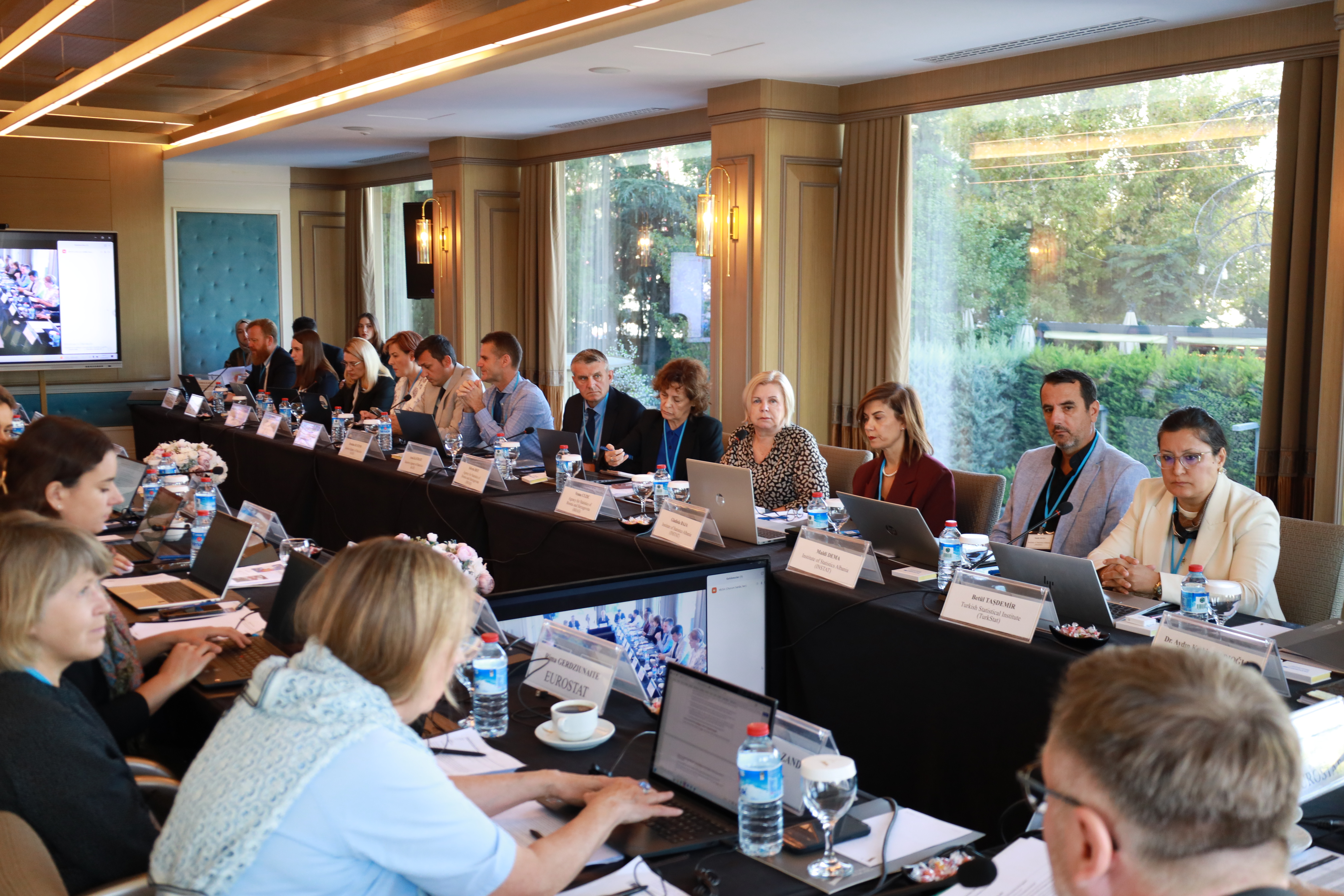European Statistical Cooperation: Participation of BHAS at the PGSC Meeting in Ankara
The Agency for Statistics of Bosnia and Herzegovina (BHAS) participated in the meeting of the Policy Group on Statistical Cooperation (PGSC), held annually with the aim of bringing together directors and senior officials of statistical institutions from enlargement countries and representatives of the European Commission.

The meeting serves as a platform for exchanging experiences, defining common priorities, and planning next steps in aligning national statistical systems with European standards and practices.
Eurostat presented the latest activities and plans of the European Statistical System, with a particular focus on the implementation of the revised Regulation (EC) No. 223/2009 on European statistics. The Regulation defines key principles of independence, professional standards, confidentiality, and quality in the production and dissemination of official statistics, while also introducing new approaches to data management and use.
In this context, the importance of developing the concept of data stewardship was highlighted — managing data through cooperation between the public and private sectors to ensure access to reliable, secure, and high-quality data sources that can complement traditional statistical data and enhance evidence-based policymaking.
Special attention was given to the EU enlargement policy and the candidate countries’ plans to meet all statistical requirements by the time of accession. Countries from the region presented their main achievements and reform activities. On behalf of the Agency for Statistics of Bosnia and Herzegovina, Director Vesna Ćužić showcased progress achieved in the areas of business statistics, education, social protection, and vital statistics, including the implementation of the first Structural Earnings Survey, which provided internationally comparable data on wages by gender, occupation, and enterprise characteristics.
BHAS also shared examples of good practice in communication, through the publications Bosnia and Herzegovina in Figures and Women and Men in Bosnia and Herzegovina, which, through modern visual design, infographics, and digital formats, bring statistics closer to citizens and contribute to better visibility and understanding of official data.
As part of discussions on future cooperation priorities, Eurostat announced the preparation of a new Strategy for Statistical Cooperation 2028–2034, aimed at further strengthening partnerships and methodological harmonisation between enlargement countries and the European Statistical System.
A segment of the programme was dedicated to the Peer Review process, through which independent experts assess the extent to which national statistical systems comply with the European Statistics Code of Practice. For Bosnia and Herzegovina, the first expert mission is planned for May 2026, marking the start of a comprehensive evaluation and quality improvement process in national statistics.
The two-day programme in Ankara reaffirmed that cooperation, experience sharing, and the joint development of methodological solutions are key to strengthening the statistical capacities of enlargement


